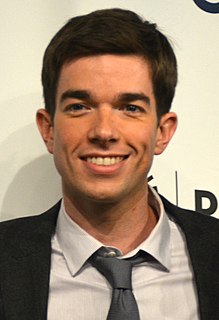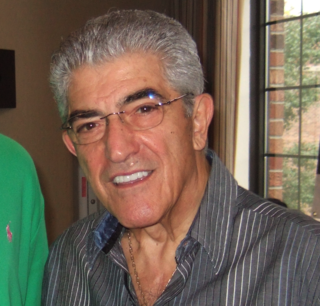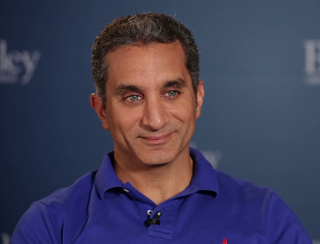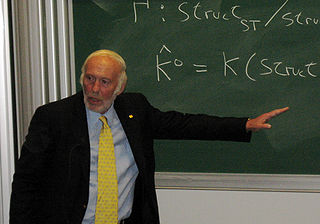A Quote by John Mulaney
I'm a very straightforward person. But that's fine for a comedian. Because a lot of times you're talking about everyone else.
Related Quotes
A lot of times I go to a comedy show, I sit there and wait for the comedian to run out of ideas and look at me and make an Asian joke. Which is very different for blacks and Latinos. You can't say certain things because everyone is cognizant of when things are and should be offensive. Asians don't have that luxury.
I think we waste a lot of time trying to convince other people that we're right. A lot of times we don't actually care what another person thinks, we just want to say what we think. To hear it reflected back to us and that we're okay, to hear that we have been understood and that we're correct - so that we can continue to be who we are in the ways we've been being, and we have nothing to feel bad about and everything is just fine. Even if what we're talking about is, like, police brutality.
You gotta not care about what people think in general about you. I'm not talking about bad stuff, if you're a nasty person, because I don't consider myself a mean person, I consider that I know what i want and I'm tough. But I'm very emotional and un-tough on a lot of levels, I cry very easily, I'm sensitive and I don't think that's a bad thing.
I get very confused about being called a comedian, because when you say 'I'm a comedian,' people expect you to crack a joke. Maybe I use laughter and humour to make people think. I don't know what you call that - a humourist? A satirist? A pessimistic comedian? I don't know. Satirists can be very dark.
When you're at the basketball court watching a game, one person may be talking about a fight he had with his wife, another is talking about the last hard-on he got, someone else is talking about the presidential election. The language and the tone and the voice - I'd love to be able to capture that spontaneity.
If I say 'political comedian,' then people think you're talking about you, the Senate and Congress, and what's going on in Washington D.C. If I say 'comedian,' people automatically assume that you're a comedian who talks about how his wife won't listen to him and that dummy down at the mechanic who wouldn't fix his car.
A lot of people complain about yesterday. We have no power to change yesterday. But this very day, 30 years later, is what we can control and decide. Change yourself, take baby steps, and stay determined for ten years. I thank the times of change and everyone’s complaints. Because when everyone is complaining, that is your chance, an opportunity. It’s only in times of change that someone can be clear of what he has and wants, and what he needs to give up.
The actual communicative value of what we say is usually quite small. I've lived for times in small, isolated fishing villages, where everyone knows everyone each other and everyone knows what's going on and everyone's watched the same TV programs and, really, there's not a whole lot of new information to convey. But there's still a lot of talking. What's said doesn't seem to matter; that you say it, and who you say it to, and how you say it is what matters.


































